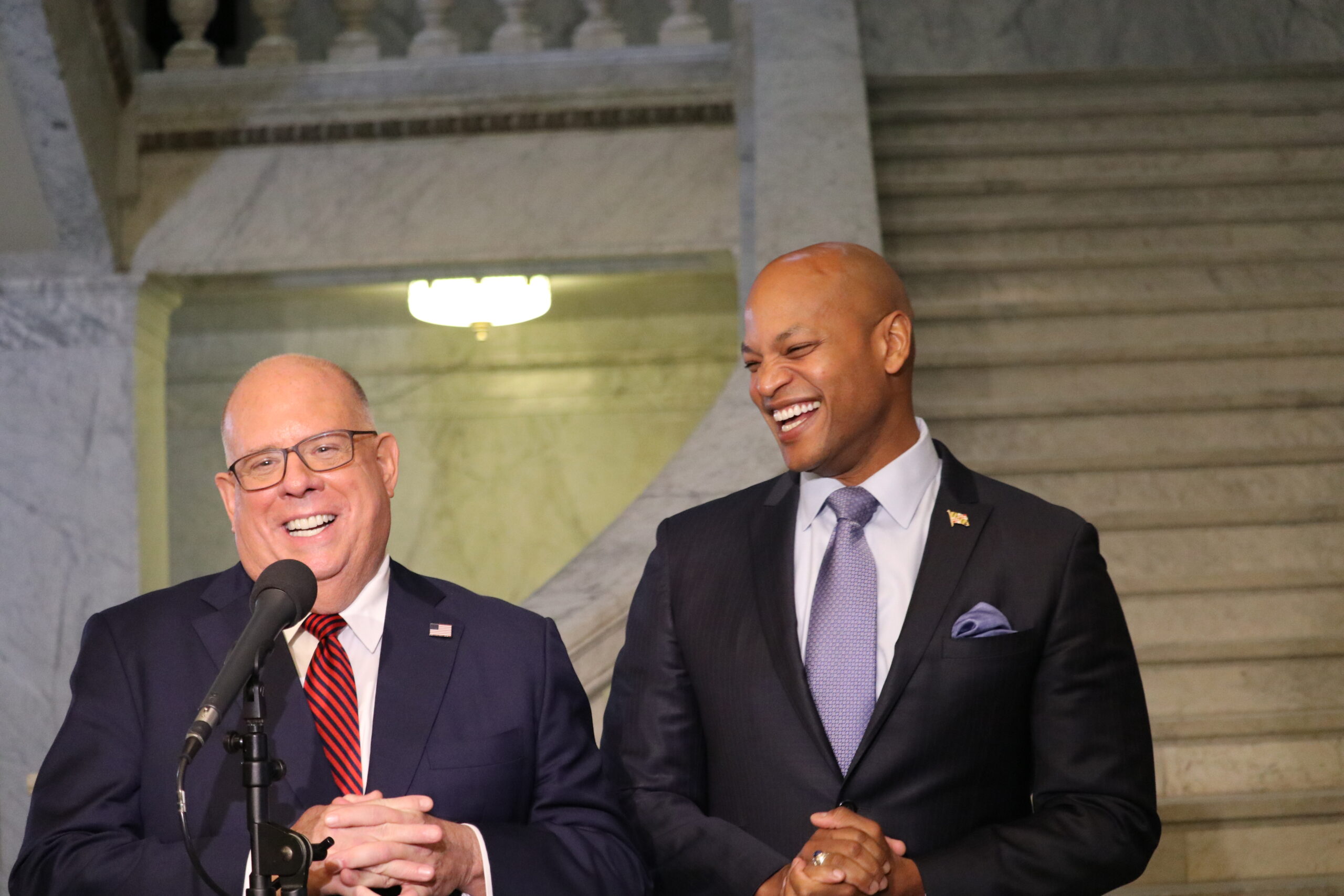Following Richard Nixon’s election as President in 1968, John Mitchell, Nixon’s campaign manager, was asked by the media what to expect when Nixon assumed office.
Mitchell said prophetically long before Watergate, “Watch what we do, not what we say.”
Those words apply to many candidates for public office today.
The are at least two recent examples in Maryland.
Prior to leaving office after two terms, Republican Governor Larry Hogan announced that he had no interest in running for an open U.S. Senate seat in Maryland, formerly held by Ben Cardin.
Hogan went as far as saying his experience as a business executive and eight years serving as governor left him reluctant to serve in a deeply divided legislative body marked by lengthy and often bitterly partisan dialogue and decision-making.
Then, in February 2024, Hogan entered the Senate race, where he easily won the Republican nomination in a primary election but lost in the general election with 42.8% of votes cast.
In 2022, Wes Moore was elected as Hogan’s Democratic successor with 64.5% of votes cast.
Almost immediately following his election, Moore was widely viewed by political pundits in Maryland, Washington DC, and nationally as a potential presidential candidate in 2028.
To date, Moore has said early and often regularly he is not pursuing that goal.
Despite saying that, it has been most interesting watching media reports of what Moore has done in the political arena during his first term as governor.
Moore:
Spoke at the 2024 Democratic National Convention.
Campaigned for Kamala Harris in Pennsylvania, North Carolina, and Michigan.
Campaigned for Democratic candidates in Virginia.
Appeared on The View where Joyce Behar told him he looked “very presidential.”
Interviewed with CNN following his college commencement speech in southeastern Pennsylvania.
Attended an Aspen Colorado fundraiser hosted by Damian O’Doherty, a Maryland political operative and co-founder of Baltimore based KO Public Affairs.
He shared his thoughts on “bold, purposeful leadership” on a podcast with the NBA’s Golden State Warriors head coach Steve Kerr, and CBS Evening News co-anchor John Dickerson.
Delivered a keynote speech at the South Carolina Democratic Blue Palmetto Dinner.
Attended a fish fry hosted by Congressman Jim Clyburn who is widely credited for a Joe Biden 2020 primary campaign resurgence when that campaign was stalled.
Met with former political advisors to Barack Obama and Joe Biden to discuss a presidential path to the White House through South Carolina.
Spoke to hundreds of political insiders in South Carolina about his personal biography and on his record as Maryland Governor.
Spoke at an NAACP “Fight for Freedom” Dinner in Detroit Michigan.
Spoke at the Virginia Democratic Party’s Blue Commonwealth Gala.
Ultimately, all this travel and schmoozing by Moore may be for naught.
Next year, Moore must win both the Democratic primary election and the general election in Maryland.
The conventional wisdom that he will win both is far from a given.
In polling done earlier this year, Moore’s job performance approval fell to 55% from 61% from polling done in the prior month.
These poll results occurred before Moore signed into law a wide range of tax increases, new taxes, fee increases, and new fees that were approved in the 2025 general assembly session.
As I write this, Moore has an opponent in the 2026 Democratic primary and three potential opponents seeking a gubernatorial nomination in the 2026 Republican primary.
He will also have a Green Party candidate in the 2026 general election.
In the case of the Democratic and Republican primaries especially, but not exclusively, there may even be even more candidates deciding to run.
One wild card in the Republican primary is former Governor Hogan.
Despite his failed U.S. Senate run, a survey done after Hogan’s two terms as governor showed he had a 77% job approval rating that included an 81% approval rating with Democratic voters.
Hogan has not yet announced his decision on seeking a third term ,which the state constitution allows since it would not be a third successive term.
Assuming Moore is the successful Democratic candidate for governor, there is also the hard political reality that not meeting expected vote totals in elections that any candidate is expected to win can be an insurmountable roadblock on a journey to the White House.
Preeminent Maryland political analyst Len Foxwell has observed — “What we have seen in the past where prospective gubernatorial candidates and prospective presidential candidates have been derailed because of weaker than expected showings back home.”
Regardless of who is elected Maryland Governor in 2026, voters in that election cycle and every election cycle in Maryland would be best served if there was no longer a regular mismatch between what some candidates of every party affiliation say and what they do.
David Reel is a public affairs and public relations consultant who lives in Easton.



Bil Anderson says
If I were Governor Moore, I would not likely risk being a candidate for re-election. It will be a daunting task of competent governance for anybody to follow this Governor and hope to pull the state out of a very difficult financial situation that it is going to find itself it. Certainly Mr. Moore isn’t going to want to do it. He is reasonably good with words but lacks action ability.